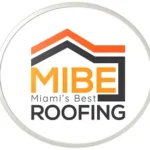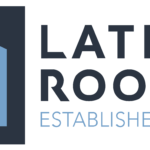Roof Financing for Low Credit Score Homeowners: Options and Alternatives
Understanding the Challenges of Roof Financing with Low Credit Scores
For homeowners with low credit scores, financing a new roof can be a daunting task. A poor credit score can make it difficult to secure a loan or credit line, as lenders view borrowers with poor credit as high-risk investments. This can be especially challenging for homeowners who have experienced financial difficulties, such as job loss, medical emergencies, or divorce, which can lead to credit score deterioration. Despite these challenges, there are still options and alternatives available for low credit score homeowners seeking roof financing.
Credit Score Requirements for Roof Financing
When applying for roof financing, lenders typically require a minimum credit score of 600 to 650 to approve a loan. However, some lenders may offer roof financing options with lower credit score requirements, often with higher interest rates or fees. For homeowners with credit scores below 600, it may be more challenging to secure financing, but there are still options available.
Traditional Roof Financing Options
Traditional roof financing options include Home Equity Loans, Home Equity Lines of Credit (HELOCs), and personal loans. Home Equity Loans allow homeowners to borrow against the equity in their home, using the property as collateral. HELOCs provide a line of credit that can be used to finance a new roof, with interest rates and repayment terms similar to a Home Equity Loan. Personal loans, on the other hand, are unsecured and may have higher interest rates and fees.
Alternative Roof Financing Options
For homeowners with low credit scores, alternative roof financing options may be more accessible. These options include:
Roof Financing Companies with Lower Credit Score Requirements
Some roof financing companies specialize in providing financing options for homeowners with low credit scores. These companies often have more flexible credit requirements and may offer more competitive interest rates and terms. Examples of roof financing companies that cater to low credit score homeowners include RoofClaim, Roofing Loans, and Homeowners of America.
Government Assistance Programs
Government assistance programs, such as the Federal Housing Administration (FHA) 203(k) loan program, can provide financing options for homeowners with low credit scores. The FHA 203(k) loan program allows homeowners to finance the cost of a new roof, as well as other home repairs, into a single loan.
Community Development Block Grants (CDBGs)
Community Development Block Grants (CDBGs) are government programs that provide funding for low-income homeowners to repair or replace their roofs. CDBGs are administered by local governments and may offer financing options with low or no interest rates.
Local Non-Profit Organizations
Local non-profit organizations, such as Habitat for Humanity and the National Roofing Contractors Association (NRCA), may offer roof financing options or resources for low-income homeowners. These organizations often partner with local governments and contractors to provide affordable roofing solutions.
Conclusion
While roof financing can be challenging for homeowners with low credit scores, there are still options and alternatives available. By exploring traditional and alternative financing options, as well as government assistance programs and local non-profit organizations, low credit score homeowners can find a solution that meets their needs and budget.




